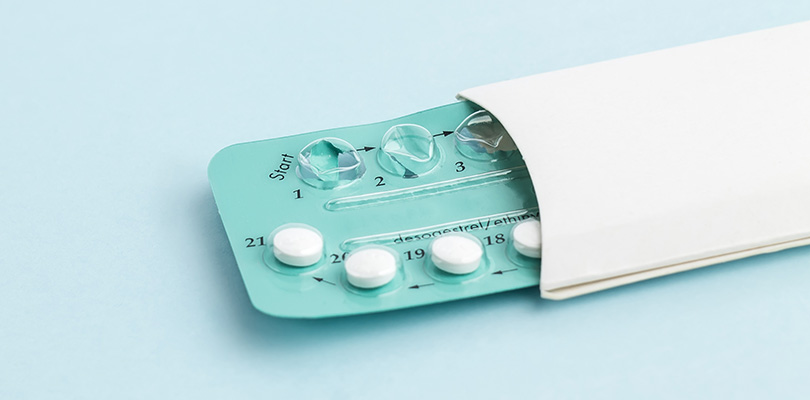Natural Menopause Relief Options
If you are suffering with menopausal symptoms such as hot flashes and mood swings, you know just how disruptive they can be to your life. They can negatively affect your sleep, decrease your energy levels and impact your mental health. The good news is that there are many natural treatment options that may help to reduce your symptoms and help you get through this transitional period more easily.
What is Menopause?
Menopause is a natural physiologic process that typically occurs in your 40s or 50s that marks the end of your menstrual cycle. It is diagnosed once you have gone 12 months without a period.
Symptoms of Menopause
At least 66% of women experience signs and symptoms of menopause. While menopause signs and symptoms are different for every woman, you will likely experience irregular periods to some degree before they completely stop. For instance, you may skip a month or two and then have your period return, or your period may be lighter and shorter than usual, leading to periods that are closer together before they eventually stop all together.
Additionally, you may experience a combination of other signs and symptoms leading up to menopause, including:
- Hot flashes
- Mood changes (anxiety, depression, irritability)
- Poor concentration and memory
- Vaginal dryness
- Night sweats
- Chills
- Slowed metabolism
- Weight gain
- Sleep difficulties
- Changes to your hair and skin (thin hair and dry skin)
- Changes to your breasts (decreased fullness)
Post-menopausal women are also at an increased risk for various diseases such as obesity, diabetes, osteoporosis and heart disease.
Natural Menopause Relief Options
Below we will discuss various natural treatment options to help manage your menopause symptoms.
Regular Exercise
Regular exercise can help alleviate your menopause symptoms by improving your metabolism, energy levels, sleep, bone health and mental health. Additionally, it can help to maintain a healthy weight and protect you against various health conditions such as heart disease, stroke, cancer, diabetes, high blood pressure, obesity and osteoporosis.
Healthy Weight
Gaining weight during menopause is quite common and can be the result of hormone changes, genetics, aging and lifestyle. However, gaining weight, especially centrally around the waist, does not only increase your risk of chronic health conditions including diabetes and obesity, it can also contribute to your menopause symptoms. Therefore, maintaining a healthy weight may help to control your menopause symptoms.
Eat Fruits and Vegetables
Consuming fruits and veggies can help to keep your bones healthy by preventing bone loss. Additionally, fruits and veggies are typically low in calories and consuming them can help you feel full. This helps with maintaining a healthy weight. They can also help to decrease your risk of various chronic health conditions, such as heart disease.
Consume Foods High in Vitamin D and Calcium
Consumption of foods high in calcium such as milk, yogurt, cheese, green leafy veggies, beans, tofu, sardines, as well as calcium fortified products, is important for menopausal women. Additionally, getting enough vitamin D, either via sun exposure, supplements, or dietary sources such as eggs, oily fish, cod liver oil, and vitamin D fortified foods, is also important. Adequate intake of calcium and vitamin D is associated with good bone health. Additionally, adequate levels of vitamin D in postmenopausal women is linked to a lower risk of hip fractures.
Before you hit the pharmacy shelves, get to know what these supplements to take during menopause can do for you.
Consume Foods High in Phytoestrogens
These are naturally occurring plant compounds that have the ability to mimic estrogen in the body. Consumption of these foods may help to balance your hormones during menopause and alleviate symptoms such as hot flashes and night sweats. Foods that are high in phytoestrogens include soy products, tofu, flaxseeds, sesame seeds and beans, among others.
Stay Away From Food Triggers
There are certain foods, including alcohol, caffeine and sugary or spicy foods, that can trigger night sweats, hot flashes and mood swings. Identifying your trigger foods with the help of a symptom diary and avoiding triggers once identified can help to keep your menopause symptoms under control.
Stay Hydrated
A decrease in estrogen levels during menopause often leads to dryness. Consuming eight to 12 glasses of water per day may help to alleviate dryness and can also help to decrease stomach bloating that can happen due to hormonal changes. Additionally, consuming an adequate amount of water can help to maintain a healthy weight by helping you to feel full. It can also help to increase your metabolism. Cold drinks may also help with hot flashes as they help you feel cooler.
Cut out Processed Foods and Sugar
Consuming processed foods and sugar can cause blood sugar spikes and dips making you feel irritable and tired. They may also affect your bone health. Cutting out these products can help to improve your bone health and your mental health.
Apply Topical Vitamin E
Topical vitamin E applied to the vagina can help to alleviate vaginal dryness and may also help to relieve hot flashes.
Avoid Smoking
Long-term smoking can lead to decreased bone health and an increased risk of fracture. Quitting smoking can help to protect your bone health during menopause.
Take Natural Supplements
Supplements such as phytoestrogens, black cohosh, probiotics, prebiotics, DHEA-S, kava, evening primrose oil and dong quai are often used to alleviate menopause symptoms, but the research to support their use is weak.
In Conclusion
Menopause can be a difficult transitional time for many women. If you are going through menopause and suffering with the uncomfortable symptoms associated with it, try using some of the natural remedies mentioned in this article to keep your symptoms under control and help you enjoy life!







